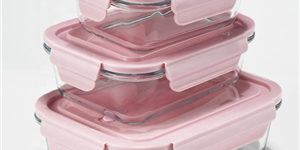Introduction: As sustainability becomes a global priority, the future of plastic lunch boxes is undergoing transformative changes. In this blog, we’ll explore the latest advancements in sustainable packaging and how they are shaping the future of plastic lunch boxes.
- Plant-Based Plastics: The rise of plant-based plastics derived from renewable resources is revolutionizing the lunch box industry. We’ll discuss how these bioplastics offer a sustainable alternative to traditional petroleum-based plastics, reducing carbon footprint and promoting a circular economy.
- Edible Packaging: Innovations in edible packaging materials are gaining traction. We’ll explore how edible coatings and wrappers made from natural ingredients can eliminate plastic waste and provide an eco-friendly solution for lunch box packaging.
- Smart and Interactive Features: The future of plastic lunch boxes embraces technology, with smart and interactive features being developed. We’ll discuss how these features include temperature monitoring, portion control assistance, and even integration with mobile apps for meal planning.
- Nanotechnology for Food Preservation: Nanotechnology is being explored to enhance food preservation in lunch boxes. We’ll discuss how nanomaterials can prolong the freshness of food, reducing food waste and supporting sustainable practices.
- Zero-Waste Packaging Concepts: Designers are experimenting with zero-waste packaging concepts for lunch boxes, focusing on minimizing materials and utilizing biodegradable components. We’ll explore how these designs aim to eliminate single-use plastics and promote a circular approach.
- Sustainable Supply Chains: The future of plastic lunch boxes lies in sustainable supply chains, where brands source materials responsibly and implement ethical production practices. We’ll discuss the significance of supporting brands committed to sustainability.
Conclusion: The future of plastic lunch boxes is heading towards sustainable packaging advancements, including plant-based plastics, edible packaging, smart features, nanotechnology for food preservation, zero-waste concepts, and eco-friendly supply chains. By embracing these innovations, the lunch box industry contributes to a greener and more responsible future.








